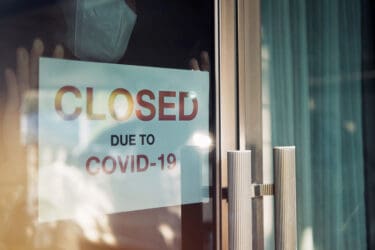 Several months ago, when Covid-19 was first starting to spread domestically, I wrote a column about the importance of having a plan in place should the virus get really bad here in the area. In all of my planning, the one thing I didn’t think to do was get a haircut. Where I live in Liberty, hair salons were allowed to reopen a little over a week ago. That first weekend, I made an appointment to get a much needed trim.
Several months ago, when Covid-19 was first starting to spread domestically, I wrote a column about the importance of having a plan in place should the virus get really bad here in the area. In all of my planning, the one thing I didn’t think to do was get a haircut. Where I live in Liberty, hair salons were allowed to reopen a little over a week ago. That first weekend, I made an appointment to get a much needed trim.
Since at the time, very little was open outside of the Northland the wait to get a haircut was extreme. Some people were waiting as much as 3 hours to get a seat in the chair. While waiting for my turn I talked with some of the people outside of the shop. One person who I spoke with said he wasn’t from the area, but because Clay County businesses were the only ones that had reopened, he had decided to make the trek north. Driving by multiple closed salons along the way, he voiced his complaints about how these forced closures, designed to keep people safe, were actually creating artificial shortages and forcing people to congregate in the few places where businesses were open. As I sat, waiting for my name to be called among this large gathering of hairy people I couldn’t say I disagreed with him.
After getting my cut, I went to a local superstore to pick up a few things. When I got there I found myself in another line. This time to enter the store. I recalled my conversation from earlier as I stood there for 15 mins with about 25 other people along the sidewalk. I asked myself “how much safer would we all be if half of the metro wasn’t at this single store?”
I wrapped up my errands for the day by stopping at a local pizza place to get dinner for the family. As they handed me my carryout order I looked at all the empty tables and asked when they planned to open the dining room again. The owner/manager just sighed and said who knows. With an inquisitive look I asked her “you’re allowed to now right?” she said that she was, but explained it requires 11 employees to keep the dining room going, and with restaurants capped at only 10% of their maximum occupancy current rules would only allow her to have about 20 customers in at a time. She said she would lose money doing that. She went on to say that many of her employees didn’t want to come back if she did reopen because with the added benefits from the stimulus bill, they were making more off unemployment. As I left with my pizza I thought to myself how ridiculous this whole situation had become.
My point in sharing these experiences with you is not to voice my opposition to the stay-at-home order, or to demand businesses be allowed to open without restrictions. Instead it’s to hopefully communicate that when it comes to governmental action, there are always unintended consequences to the good intentions. As a former political science teacher, one of the things I used to emphasize to my kids was that no law or public policy happens in a vacuum, there are always winners and losers produced. A good lawmaker attempts to limit both.
Sadly, the steps we have taken to protect the public health are not immune to this principle (pun intended). Small local businesses have been particularly hurt by our attempts to slow the virus. Corporate restaurants and merchants with a large online presence, and excess cash reserves have been much more capable of adapting to Covid protocols than many mom and pop places.
Ironically, the stimulus bill which attempted to help those who were struggling have created their own sets of winners and losers. Many large corporations including Ruth’s Chris Steakhouse and Shake Shack made national news after receiving millions in forgivable SBA loans, while many small business could not get approved before funding of the program ran out.
As a capitalist, it makes me nervous every time government becomes too involved in the economy. As Congress deliberates on another round of stimulus spending I am becoming less optimistic about the direction we are headed economically. If history is any indication, while government never seeks to make a bad situation worse, they often times do.
